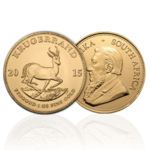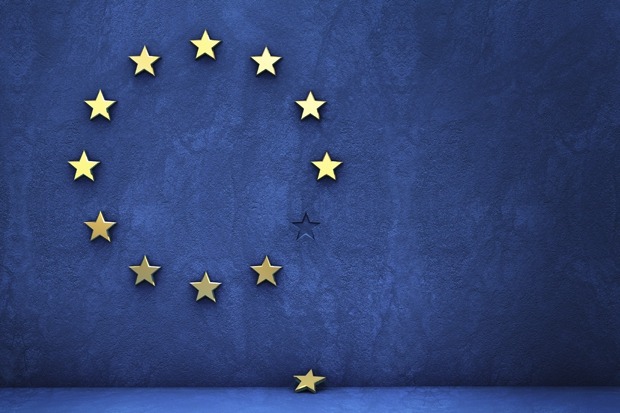
Yesterday, June 23rd, the United Kingdom organized a referendum on whether the people wanted to stay in or leave the European Union. They have chosen with a narrow majority to leave the EU, and the consequences of this decision are enormous.
Let’s start by recalling ourself the core of the history of this vote and the anti-European sentiment in the UK, shall we? Because it is useful to recall that the uk is not part of the founding countries of the European Economic Union * (Italy, West Germany, France, Netherlands, Belgium, Luxembourg). Of the fact that it is an island nation, the UK differs in several points at cultural level and economic structure vis-à-vis of continental Europe.
(* the unions have worn different names at different times, but this is the beginnings of the EU anyway)
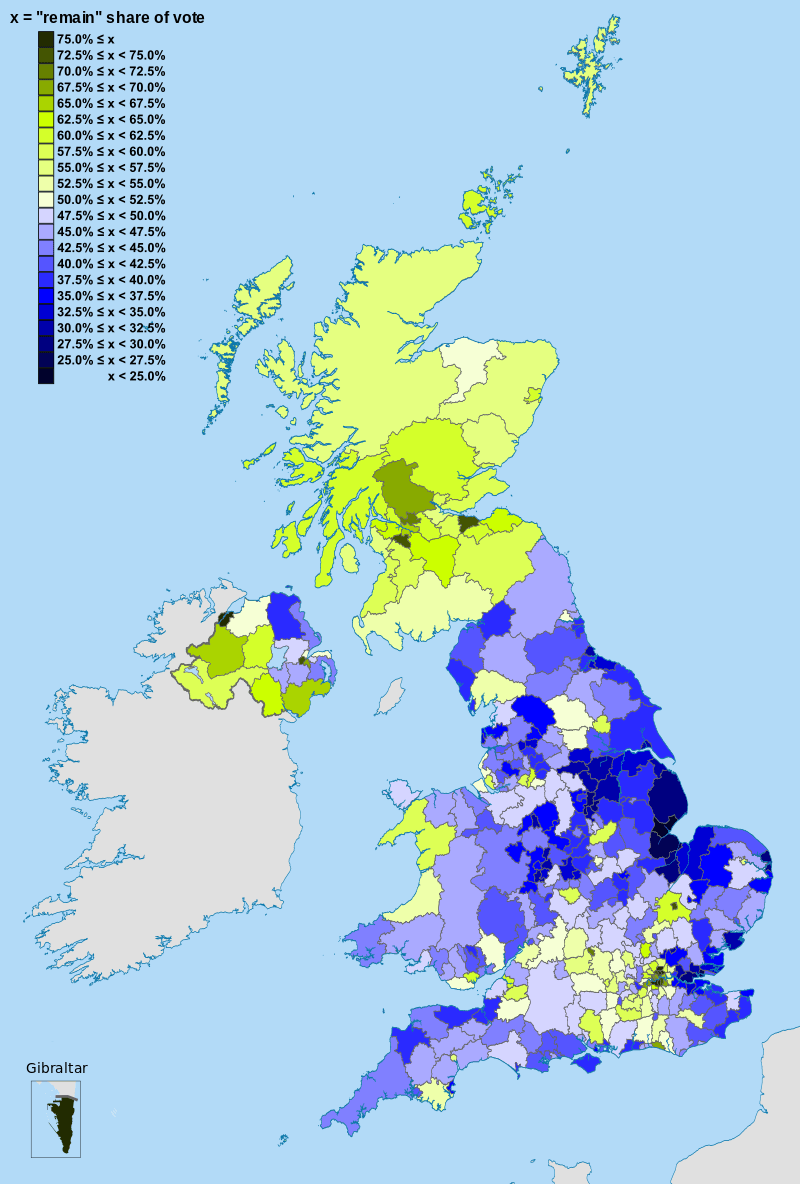
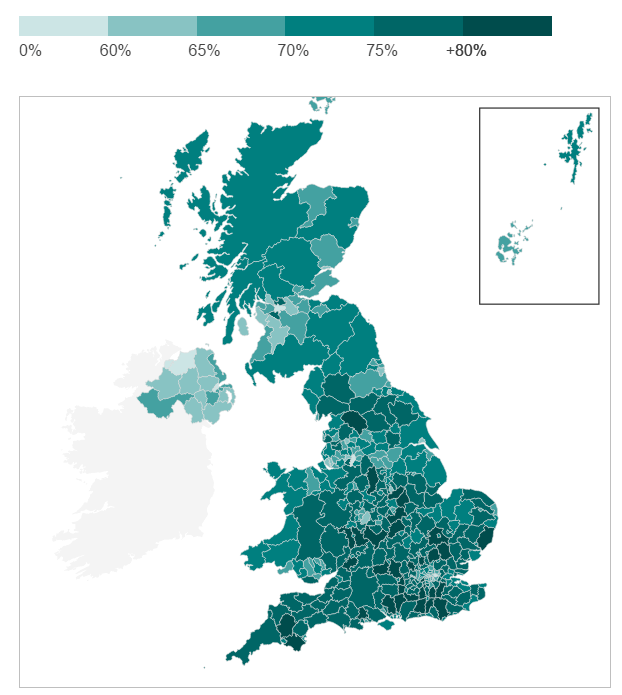
on the left the vote on the referendum (to remain in green and leave in blue) and on the right the percentage of voting
These differences have manifested in maany ways, but this is what has led that France and England are spiritual enemies since forever, that the English military force is in its navy and air force rather than the ground army , the English drive on the left because Napoleon conquered Europe (it sounds crazy but it’s true) … the result is that in the XXth century the country was not especially Europhile and it never really changed. In 2013 David Cameron promised a referendum on this this special issue that divides the country in case of victory in the 2015 elections.
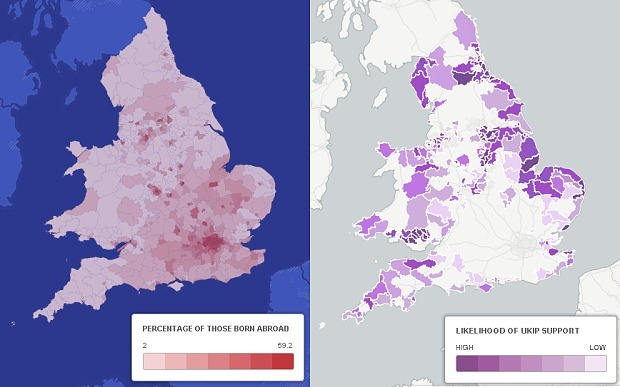
on the left the percentage of inhabitants that weren’t born in the UK, of the right regions that votes the most for Eurosceptic parties (note: immigrants do not have the right to vote)
The Conservatives won the election, the Prime Minister reaffirm his promise, he has negotiated its position to the EU with the European Commission after the agreement he called to remain in the union, his party is divided on the question, the debate was officially launched, and finally the votes are counted and the decision is made (almost see bottom of article). This whole process has not been without accidents nor without controversy, but the fact is that the vote is democratic and clear.
And if the majority of British want to leave the European Union, this is not the case in some areas that are very pro-European. Among these areas there is * Scotland, Northern Ireland, major cities including London, and the overseas territories of the United Kingdom. And this ideological separation might revive old ideas within the country. The Scottish National Party already demand a new referendum for independence, an Irish party considering to request for the reunification of Ireland and Northern Ireland, David Cameron announced he would resign in four months.
(* Who decided to remain in the UK in part because it would remain in the European Union as well)
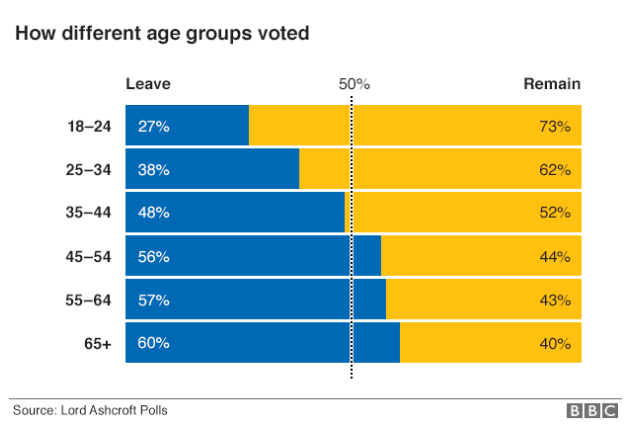
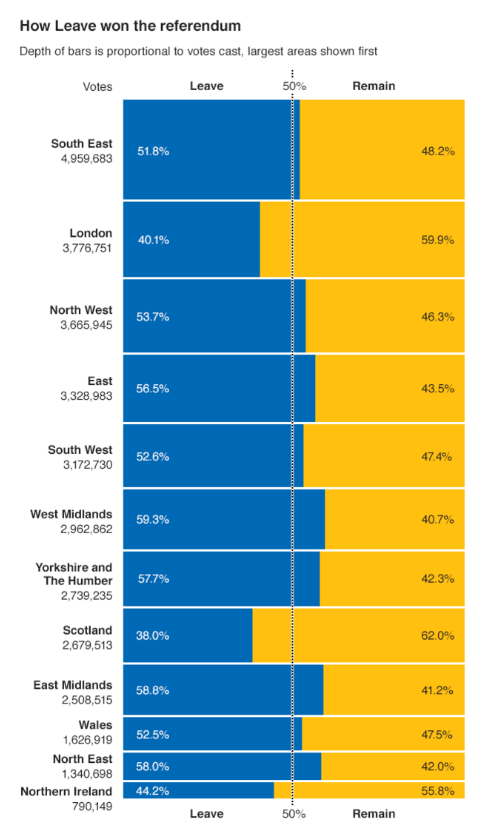
It’s not a point of debate a lot of things have happened in a short time. This is an economic environment of uncertainty that does not tend to reassure the stock market, and the least we can say is that the markets have reacted a lot on this referendum. Gold has risen a $ 100 per ounce in less than three hours, all European stock exchanges have declined significantly, the pound sank to the lowest level since 1985 … Fortunately the stock center of the city of London was anticipating this risk by remaining open to the night the 23rd and 24th, it helped to have a quick response but the current assessment remains catastrophic.
It is hard to predict what will happen due of the result of this vote in the medium and long terms (since in the short term the result is sad), and there are good arguments on both sides, even if the concern of the external market will prevail probably. But what is certain is that wewill still talk in five years, in good or bad but we’ll talk about it without fail.
further reading :
http://www.vox.com/2016/6/20/11965064/brexit-immigration-economic-decline
https://fivethirtyeight.com/features/what-a-brexit-could-mean-for-the-economy/
http://www.vox.com/2016/6/23/12005814/brexit-eu-referendum-immigrants/in/11741053
https://en.wikipedia.org/wiki/United_Kingdom_European_Union_membership_referendum,_2016


